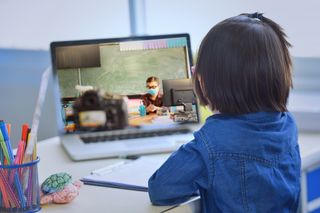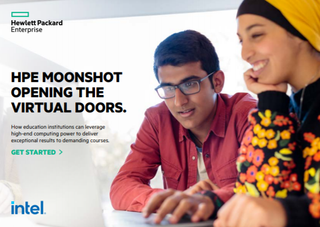Microsoft warns of growing "digital divide" between state and private schools
Vast majority of UK state schools have been unable to support students with hardware during the pandemic

Just 1% of public primary schools are able to provide hardware for pupils to take home, compared to 38% of private schools, according to a new survey by Microsoft.
The figures were only slightly better for secondary level, with just 7% of state schools able to provide devices for students against 20% of private schools.
The data comes from polling organisation Teach Tapp and has been published in tandem with the UK think tank The Centre for Education and Youth. Its findings highlight the challenges faced in providing connected learning, something that the majority of students have come to depend upon during the lockdown.
The survey, which involved 5,000 teachers across England, including more than 1,200 senior leaders, found that just one-in-three were able to access one-to-one technologies in state schools, such as laptops, tablets, or smartphones, compared to two in three teachers in the private sector.
In schools rated inadequate by Ofsted, 72% of students do not have access to individual devices in their classrooms, compared with 59% in outstanding schools, the survey found.
"In order for children to reach their full potential, they need teachers who are working at theirs, with technology that can help that," said Chris Rothwell, director of education at Microsoft UK. "It's critical schools, students, teachers and IT departments have access to the right software, tools, training, and practical guidance to do just that."

HPE Moonshot: Opening the virtual doors
How education institutions can leverage high-end computing power to deliver exceptional results to demanding courses
The findings also pointed to the benefits and opportunities that technology can provide both teachers and students, particularly as some software has been made free to schools and other institutions throughout lockdown.
Get the ITPro. daily newsletter
Receive our latest news, industry updates, featured resources and more. Sign up today to receive our FREE report on AI cyber crime & security - newly updated for 2024.
"Our findings show that access to technology across England at a one-to-one level can help meet students individual learning needs, supporting them in their development of critical life skills," said Howard Lewis, surface business group head. "Yet a digital divide is now widening the achievement gap, with teachers citing a lack of access to ed-tech tools in the schools that are least able to provide access to technology for individual students."
Bobby Hellard is ITPro's Reviews Editor and has worked on CloudPro and ChannelPro since 2018. In his time at ITPro, Bobby has covered stories for all the major technology companies, such as Apple, Microsoft, Amazon and Facebook, and regularly attends industry-leading events such as AWS Re:Invent and Google Cloud Next.
Bobby mainly covers hardware reviews, but you will also recognize him as the face of many of our video reviews of laptops and smartphones.





